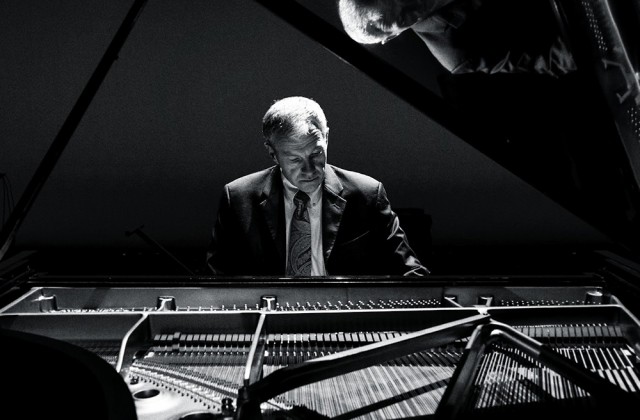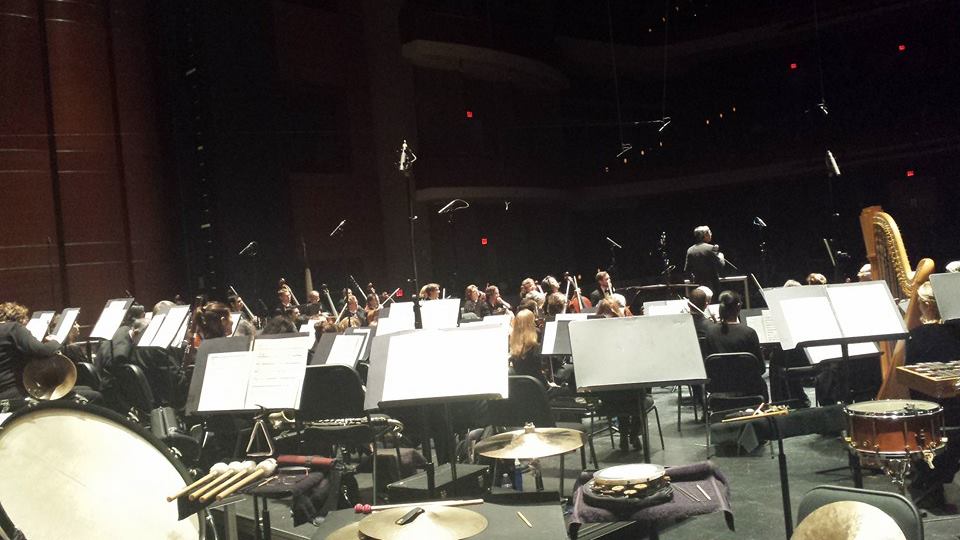Over The Hill With Anton Nel

Saturday, January 11th, 2014. It's a new year and there's a particular excitement brewing in Dell Hall. I managed to arrive on time and I'm sitting in primo orchestra seats, courtesy of my internship with the Symphony library. From a personal perspective, this show is a special one, as I spent the months of November and December painstakingly darkening note heads and documenting notation errors in the only available parts for the Peer Gynt Prelude to Act I which opens tonight's program. I'm lucky I didn't get stuck transcribing---note-by-note into Finale, each one with it's own maddening midi tone---all the parts for the out-of-print Hill piece. That honor goes to my library mentor, Alison, though I'm sure for all the effort, this concert means a lot to her too. Right Al? So laments the orchestra librarian.
Veteran pianist and University of Texas Austin professor Anton Nel is the artist du jour. Three concise piano works by "lost generation" American composer Edward Burlingame Hill (1872-1960) make an interesting pairing alongside Grieg's beloved incidental music, which perhaps serves to soften the impact of the unfamiliar. But we'll see it's not so unfamiliar after all. Hill's music is a pan-Atlantic stew, with roots in the Western Romantic canon, of course, but also in jazz, and especially ragtime. He might have found jazz through his French contemporaries---Debussy, Milhaud and the rest---whose music he admired so much that he literally wrote the book on it.
The stage is set for recording. Tonight's concert together with ASO's June 2013 performance of the Hill Fourth Symphony are slated to appear on the ASO's first commercial CD, due for release this coming Fall. While I'm counting the number of microphones on stage (at least 20), an "it's a little stringy in here" joke oozes out of a nearby patron. Shameful. When the house lights dim, the lady to my right takes out her phone to illuminate her playbill. In her defense, there is a lot of literature in there, on Hill especially.
Antihero Peer's raucous music begins the Peer Gynt Prelude, quickly followed by the melancholy Solvieg's song and two Norwegian folk dances played by the principal violist. The scene is set for a mercurial evening of music.
 Peter Bay introduces the program. 1/11/14
Peter Bay introduces the program. 1/11/14
Hill's Concertino No. 2, Op. 44 is next. We are told it is the world premiere of this piece with full orchestra. Nel, a sturdy-looking 50-something with an earnest appearance takes the stage. The piece begins with syncopated strings with a good deal of underlying dissonance, but the spirit is neoromantic. Somewhat Rachmanovian piano passages follow embellished circle of fifths progressions or occasionally clumsy modulations, though there is not a lot of memorable melodic content. From time to time, one or both of Nel's legs rise from the floor only to crash down to emphasize a moment. The piece is well-recieved, and Nel takes a deserved bow, a genuine smile across his face.
The first and most famous Peer Gynt Suite follows. Grieg's nonstop earworms are a refreshing contrast to Hill.
Hill's 1926 work Divertimento is overall a more attractive piece than the Concertino No. 2. The influence of jazz and ragtime is especially prevalent, and the piece eventually develops a dense, romantic orchestration reminiscent of Howard Hanson's Second Symphony.
After the second of Grieg's Peer Gynt Suites, Nel returns for the final piece on the program, the Concertino No. 1. Of the three Hill works on the program, this is the most melodic, with its dance effects and use of drones. A short but mighty fugue erupts towards the end, earning the respect of this reviewer. Nel makes a show out of it throughout, with quality phrasing and wonderful musicianship. He is really doing all he can for this music, and to good effect. After the applause, Nel returns to the stage for an ever-so-appropriate encore, which he introduces jokingly with "it's a piece you might recognize": Golliwog's Cakewalk. The vigorous, jowls-in-motion Nel wins hearts. Bravo.